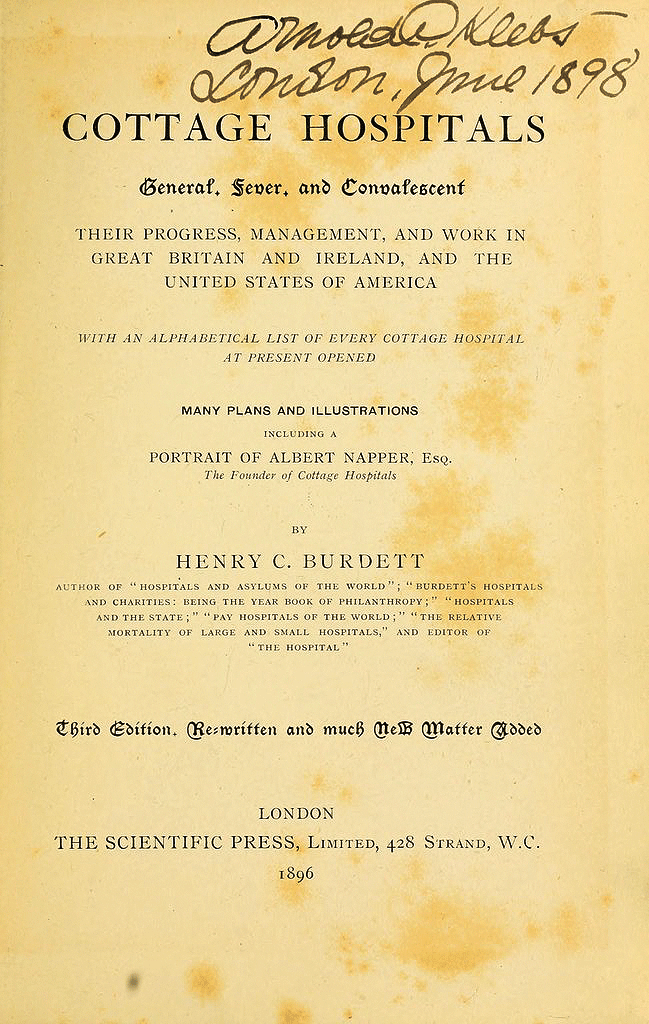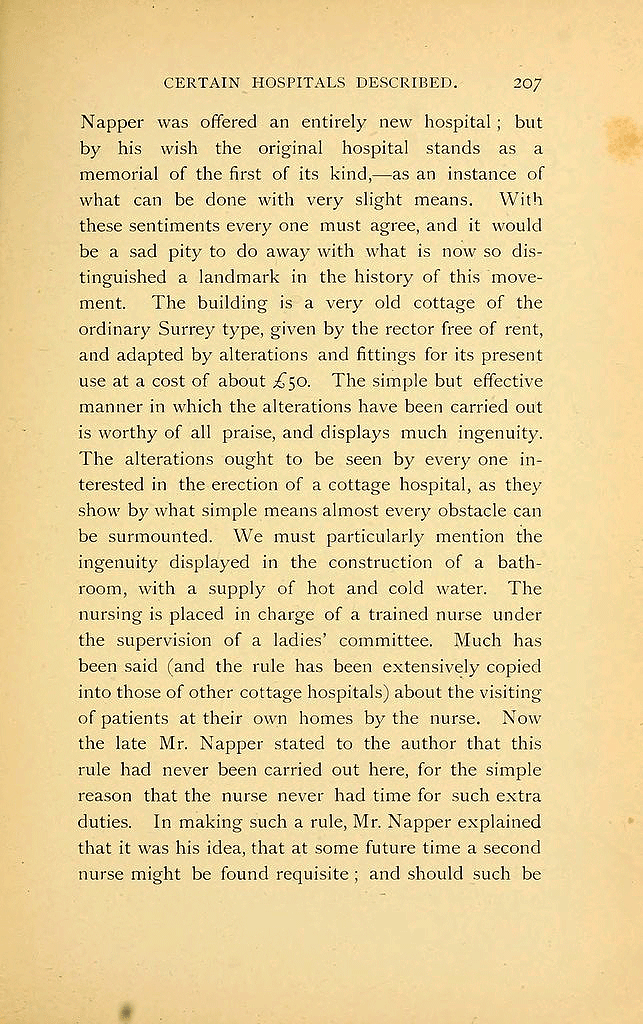
by Trevor Dale
We doubt our GP in the 1850’s, Albert Napper realised his innovative approach to community healthcare would stretch beyond these shores but it seems that indeed it did. Evidence has emerged that the cottage hospital movement was adopted across the British Empire and beyond. Now that our Heritage Interpretation specialist Hamish MacGillivray is in post, he is investigating various avenues to build a true picture of the wider history emanating from Cranleigh Hospital Cottage.
It seems that the principle of the local community hospital was adopted in the then British Empire. When the British were colonising the South Africa in the 1880’s and beyond the need for local modern health services was crucial given the prevalence of tropical diseases like malaria. The local indigenous people relied on natural cures or ‘traditional healers’. This didn’t sit comfortably with the missionaries who had set up dispensaries and of course sought to convert locals to Christianity.
Cottage hospitals helped as centres covering both aspects, by demonstrating the success of modern medication and treating colonists and natives alike. Patients could also be subject to proselytising. Sadly, though, there is evidence of racial imbalance in treatment opportunities, with some places having separate wards and in some instances, separate hospitals for black people.
Many of these establishments continue to exist today in South Africa continuing to provide great service to their communities.
Hamish has located and made available a digitised copy of Henry Burdett’s book ‘Cottage Hospitals’ dating from 1896. This came with the permission of the Wellcome Collection via Yale University.
This wonderful book is a discussion on the history of the cottage hospitals here and in the United States and discusses the politics behind local healthcare. It goes further into being essentially a manual of how to set up local services.
Massachusetts was where the cottage hospitals appear to have started in the USA and quite rapidly from around 1880. Then outside Boston there were only about 240 beds but by 1896 it seems that almost every town with over 10,000 residents had at least one small hospital. Across the New England States, there were 43 Cottage Hospitals by 1896.

I came across an interesting sentence: ‘We found, speaking generally, that the hospitals administered upon the voluntary principle were efficiently conducted, whereas those in the hands of politicians were unsatisfactory, and in no sense a credit to the country.’
Nothing new under the sun then!
We will continue to explore some of the historical records and welcome volunteers to help. It is part of a plan to establish a digital heritage archive showing the history of the Cottage Hospital and Cranleigh for future generations.
FURTHER SUPPORT FOR THE PROJECT
There are many opportunities for enthusiastic volunteers to join the project. This promises to be a rewarding challenge for those with an interest in history and heritage, or in helping people. Please contact us by phone, 01483 272987, letter or email to;
If you are a charity, business or therapist please do contact us to register your interest. We need long-term partners, and the Heritage Fund panel needs us to show them how we are engaging with our community.
To register an expression of interest in future use of the facilities please do write to us with the following information:
1. Brief description of what you offer and the benefits to clients and customers.
2. Say if and where you currently offer this service and why people would use the cottage to meet you.
3. Brief declaration of support for the project in general.
4. Return name and address and any website or social media links.
Thank you so much! Trustees Trevor Dale – Chair; Howard Barratt; Jane Briggs; Chris Bulley; Sue Dale; Nigel West. Advisors Bob Callard – architect; Joanna James – business adviser.
Scan the QR code. Visit our website:
www.cranleighheritagetrust.org.uk











